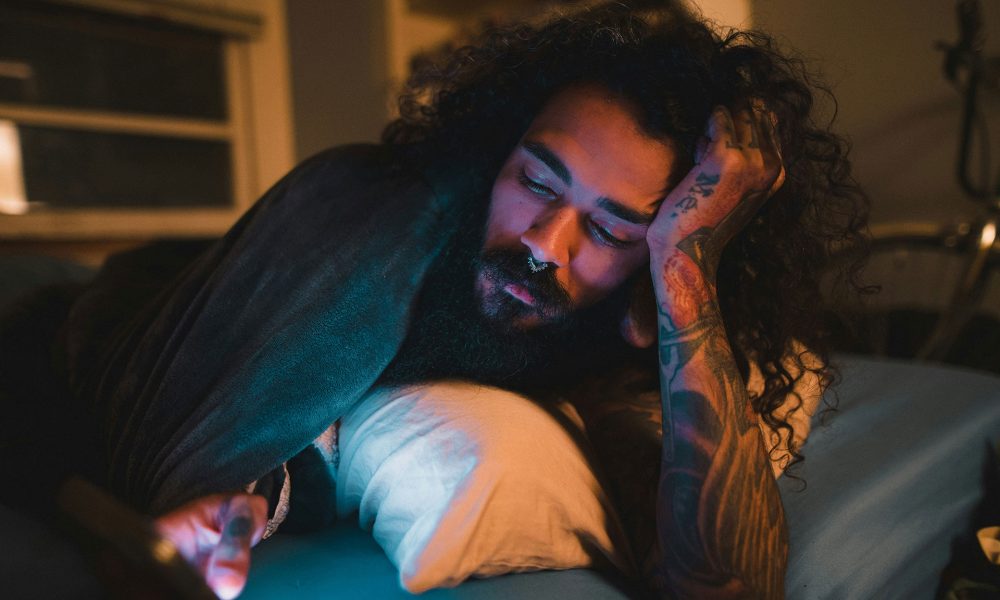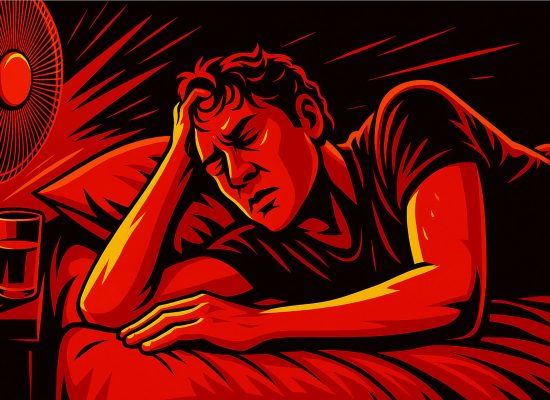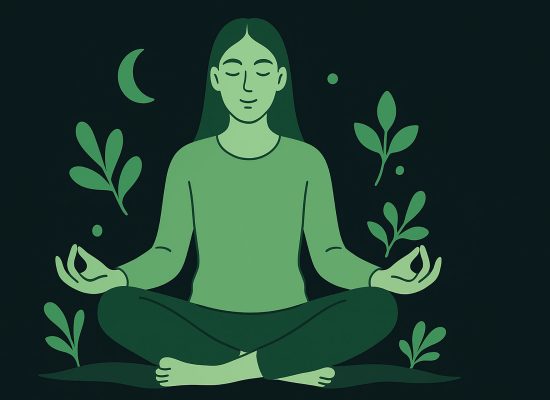Screens have become an integral part of our everyday lives. From work to leisure, most of us spend significant portions of our day looking at devices. But have you considered how screen time and sleep are interconnected? Recent research has shown clear effects of screen time on sleep, particularly when devices are used before bedtime. At Siddha Meditate, we know the importance of balancing technology with health, and we’re here to share evidence-based strategies and screen time sleep recommendations to help improve your nightly rest.
Table Of Content
- Understanding Screen Time and Its Effects on Health
- The Connection Between Screen Time and Sleep
- Mental Health and Emotional Consequences of Excessive Screen Time
- Impact of screen time on children’s sleep
- Practical Strategies to Manage Screen Time and Improve Sleep
- Tips to Create a Tech-Free Sleep Environment
- Tools and Apps to Help Manage and Reduce Screen Time
- Long-term Benefits of Improving Sleep by Limiting Screen Time
Understanding Screen Time and Its Effects on Health
Screen time refers simply to any time you spend looking at digital screens—smartphones, computers, tablets, or TVs. This time might include browsing social media, working on projects, gaming, or watching your favorite show. Categories include:
- Active screen time: Interactive activities like gaming or social media.
- Passive screen time – watching videos or TV.
Too much screen time can impact health beyond sleep, including eye strain, headaches, weight gain from inactivity, and feelings of fatigue or burnout. But the good news? Small changes in how we interact with screens can lead to significant improvements in overall well-being, energy levels, and emotional health.
The Connection Between Screen Time and Sleep
The link between screen use before bed and disrupted sleep is scientifically proven. Screens emit blue light, which tricks your brain into thinking it’s still daytime, suppressing melatonin—the hormone that signals it’s time to sleep. This disruption in the natural sleep-wake cycle highlights the strong link between blue light and sleep, making it essential to establish habits that promote melatonin production and better rest.
Have you ever found yourself scrolling through social media, only to realize it’s already past midnight? That late-night scrolling can keep your mind active, delaying the relaxation needed for sleep. According to research from Harvard Medical School, exposure to blue light from screens can delay melatonin production significantly, making it harder to fall asleep.
How Blue Light Affects Sleep
- Harvard Medical School research indicates blue light delays melatonin production, complicating sleep initiation.
- Prolonged evening screen use diminishes REM sleep quality. Reducing screen time before bed not only improves sleep onset but also enhances deep sleep, ensuring a more restorative night.
- Stimulating content increases brain alertness, counteracting relaxation efforts.
Children and teenagers are more sensitive to blue light exposure, as their eyes filter out less of it, leading to stronger melatonin suppression and greater difficulty falling asleep. Following screen time sleep recommendations, such as reducing screen exposure at least an hour before bed, can help mitigate these effects and support healthier sleep patterns across all age groups.
how melatonin suppression leads to difficulty in falling and staying asleep
Melatonin suppression caused by blue light exposure from screens interferes with the body’s natural sleep-wake cycle, making it harder to fall asleep and stay asleep throughout the night. Improving sleep by limiting screen time before bed allows melatonin levels to rise naturally, promoting deeper and more restful sleep.

Scientific Evidence: How Screen Time Impacts Sleep Quality
Several scientific studies highlight the negative effects of screen time on sleep:
- A study in the Journal of Sleep Medicine found that nighttime screen use for more than two hours results in poor sleep quality and difficulty falling asleep. (Journal of Sleep Research)
- Research by the Sleep Foundation noted that teenagers exposed to screens before bedtime have shorter periods of deep sleep and struggle more with falling asleep. (Sleep Foundation)
- The American Academy of Sleep Medicine connects heavy evening screen use to higher rates of insomnia. (AASM)
Signs Your Screen Time May Be Affecting Your Sleep
Wondering if your screen use is impacting your sleep? Here are common indicators:
- It takes you a long time to fall asleep.
- You wake frequently during the night.
- You feel tired or groggy in the mornings.
- You’re experiencing mood swings or irritability.
Recognizing these signs is the first step toward better sleep and health.
Mental Health and Emotional Consequences of Excessive Screen Time
Excessive screen time before bed can negatively affect mental health. Regular late-night browsing increases stress and anxiety, partly due to constant digital stimulation. Poor sleep linked to screen overuse can also contribute to feelings of depression and instability.
Quality sleep is vital for emotional regulation and clear thinking. When we reduce screen exposure at night, our brains are better equipped to handle stress and maintain emotional balance.
Common Myths About Screen Time and Sleep
When discussing screen time and sleep, several myths persist, making it harder to create effective bedtime habits. Let’s clarify a few:
- Myth1: “Night mode eliminates the negative effects of screen time on sleep.”
Reality: Although night mode reduces blue light exposure, engaging or stimulating content still activates your brain, preventing relaxation before sleep. - Myth2: “Watching TV before bed doesn’t affect sleep.”
Reality: Even passive screen time, like watching television, delays melatonin production, disrupting your sleep cycle. - Myth3: “Only lengthy screen use harms sleep.”
Reality: Even brief interactions with screens right before bed can significantly affect sleep quality and delay sleep onset.

Impact of screen time on children’s sleep
Excessive screen time before bed affects children’s sleep by delaying melatonin production and disrupting natural sleep cycles. Research shows that blue light and sleep are closely linked—blue light exposure from screens suppresses melatonin, making it harder for kids to fall asleep. This results in shorter sleep duration, frequent night awakenings, and reduced REM sleep.
Beyond blue light, stimulating content from social media, gaming, or videos increases brain activity, delaying relaxation. Studies on the impact of screen time on children’s sleep reveal that kids who use screens before bedtime struggle with falling and staying asleep, leading to daytime fatigue and irritability. Because their developing brains are more sensitive to light exposure, screen time and melatonin production have an even stronger correlation in children, making it crucial to set screen limits before bedtime.
To counteract these effects, experts recommend reducing screen time before bed by at least an hour. Encouraging digital detox before bed with alternatives like reading or mindfulness activities can significantly improve sleep by limiting screen time and fostering better sleep hygiene.
You can also read “Mindfulness for Digital Detox: How to Reclaim Focus and Reduce Screen Time“
Practical Strategies to Manage Screen Time and Improve Sleep
Improving sleep quality by reducing screen use doesn’t have to be complicated. Here are some practical, achievable strategies:
- Follow the 5-3-2-1-0 guideline:
- 5 hours before bed – stop caffeine intake.
- 3 hours before bed – finish your last meal or drink.
- 2 hours before bed – avoid work-related activities.
- 1 hour before bed – limit screen use.
- Zero times hitting snooze in the morning to build a consistent routine.
- Establish a winding down evening routine, such as reading a physical book, listening to calming music, or our favorite a wind-down meditation on Siddha Meditate app
- Use apps or device settings to set daily screen time limits.
- Consider blue-light-blocking glasses if screen usage before bed can’t be avoided entirely. Use dedicated apps that promote digital detox before bed, such as screen time trackers that help regulate evening device use and encourage mindful tech habits.
Tips to Create a Tech-Free Sleep Environment
While limiting screen time is beneficial, technology itself isn’t inherently bad. Siddha Meditate promotes mindful tech use to support healthy habits.

How to Reduce Screen Time Before Bed Without Completely Eliminating It
- Activate “Night Mode” on devices to minimize blue light.
- Keep screens out of the bedroom to reduce temptation.
- Choose audio-based activities, such as guided meditations, instead of visual interactions before bed.
- Set reminders or alarms to gently signal when it’s time to unplug.
Mindfulness Practices to Replace Screen Time Before Bed
Replacing screens with mindfulness activities can significantly enhance sleep:
- Short meditation sessions help relax your mind and body.
- Simple breathing exercises can help ease anxiety and stress.
- Utilize guided sleep sessions or soothing audio tracks from Siddha Meditate to create a calming environment conducive to sleep.
Tools and Apps to Help Manage and Reduce Screen Time
Technology itself can help manage screen use effectively:
- Siddha Meditate integrates mindfulness into daily routines, helping build healthier habits.
- Smartphone features like Night Mode filter harmful blue light.
- Apps like Freedom or Forest can encourage mindful device usage by limiting distractions.
Screen Time Guidelines from Experts
Experts provide clear guidelines for healthier screen usage:
- The American Academy of Pediatrics recommends a maximum of two hours of recreational screen use daily.
- Sleep experts suggest turning off all screens at least an hour before bedtime.
- The widely recommended 5-3-2-1-0 method helps structure evenings for optimal sleep.
Long-term Benefits of Improving Sleep by Limiting Screen Time
Reducing screen time and sleep disturbances isn’t just beneficial short-term—it provides lasting improvements to your health and daily life, By setting limits on screen time before bed, individuals can experience long-term benefits like improved cognitive function, increased energy levels, and better emotional balance:
- Enhanced Productivity: Limiting screen time before bed improves sleep quality, leading to greater focus, clarity, and efficiency throughout the day.
- Improved Emotional Stability: Better sleep reduces stress levels and helps manage anxiety, especially when paired with mindful practices like meditation available through Siddha Meditate.
- Better Physical Health: Consistent quality sleep boosts immunity, helps maintain a healthy weight, and reduces the risk of chronic illnesses related to prolonged screen use.

Balancing screen time and sleep isn’t about eliminating technology from our lives but rather managing it mindfully. Siddha Meditate supports this balance with habit-building tools designed to integrate seamlessly into your day. By recognizing the effects of screen time on sleep and following expert recommendations, you can improve your sleep quality, reduce stress, and enjoy a more balanced life. For those looking to unwind before bed, explore the best sleep meditation classes on Siddha Meditate to support a restful night. Small changes in your nightly routine can lead to significant improvements, and Siddha Meditate is here to help every step of the way.
FAQs about Improving Sleep by Limiting Screen Time
1. How does screen time before bed affect sleep quality?
Screen time before bed affects sleep quality by exposing the brain to blue light, which suppresses melatonin production. This delays sleep, reduces REM sleep, and causes frequent night awakenings. To improve sleep by limiting screen time, experts recommend reducing screen time before bed and practicing a digital detox before bed with meditation or reading.
2. What are the effects of screen time on children’s sleep patterns?
The impact of screen time on children’s sleep is significant. Since kids’ eyes filter less blue light, screen time and melatonin production are closely linked, making sleep harder. Excessive screen time before bed leads to shorter sleep duration and daytime fatigue. Reducing screen time before bed and replacing it with mindfulness practices helps improve sleep.
3. How can I reduce screen time before bed to improve sleep?
To reduce screen time before bed, set a digital detox before bed rule at least an hour before sleep. Use the 5-3-2-1-0 method and replace screens with mindfulness practices like meditation. If necessary, activate Night Mode or wear blue-light-blocking glasses.
4. Are there tools or apps to help manage and reduce screen time?
Yes! Several tools can help reduce screen time before bed and create better sleep habits. Apps like Freedom and Forest help limit distractions, while Siddha Meditate offers mindfulness practices to encourage relaxation and better sleep. Activating Night Mode or using blue-light-blocking settings on devices can also help minimize the impact of blue light and sleep disruption.








One Comment
Comments are closed.